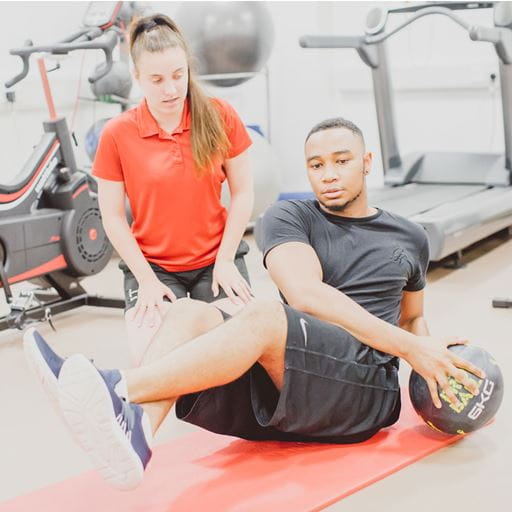Your future
Upon graduation, you'll be well equipped for a career as a sports therapist and to work with athletes at any level and across a variety of sports. Typical career destinations include:
- sports therapy or multidisciplinary clinics
- professional sport
- youth sport academies
- the health and fitness industry
- teaching
- academic research
We have great industry links and work with our University's Student Development Team to help you find out about further work experience, internships, placements, and voluntary opportunities.
Sport scholarships
Sport scholarship applications for October 2025 entry are now closed.
Our Performance Sport Scholarship programme has been created for talented athletes playing at regional, national or international level, and offers a range of benefits. We want students competing in our focus sports - basketball, volleyball, tennis and football - as well as other team sports and as individual athletes to contribute to our performance sport programme.
Our scholarships can include fee discounts of up to 100%, offered to athletes who demonstrate sporting excellence. Athletes who are awarded the scholarship may also receive a host of other benefits, including:
- free kit
- access to state-of-the-art facilities
- performance coaching
- the option to live in our Athlete Village (accommodation fees may vary)
- a support package valued up to £1,500
These benefits are designed to help athletes focus on their training and development, and to enable you to reach your full potential alongside your studies.










